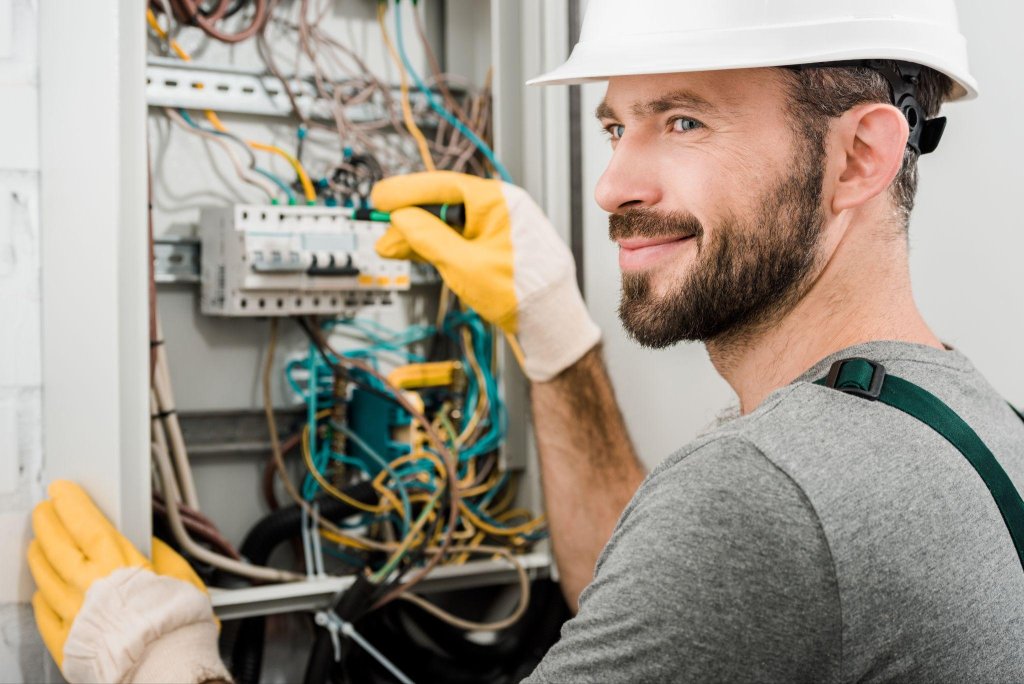In a commercial setting, electrical safety is one of the utmost importance, as large-scale electrical systems are in constant operation. Keeping your commercial building up to code and safe not only ensures that your employees are protected but it also prevents potential damage like fires or other electrical hazards.
While there are many steps you can take to ensure electrical safety in your commercial space, the most important is to have routine inspections. The expert electricians at AJ’s Electrical have broken down all inspection insights for ensuring electrical safety and answered common questions you might have.
Why Should I Perform Routine Inspections?
One of the foundations to your safety compliance efforts should be performing regular electrical inspections of all systems. These inspections will help ensure that all electrical components are functioning properly.
They can also help to identify any potential hazards, defective equipment or outdated wiring before compromising anyone’s safety. Inspectors will also identify signs of wear and tear such as frayed wires or damaged insulation to either repair or replace.
What Should I Expect During an Inspection?
An electrical inspection is typically a straightforward and simple process that shouldn’t take too long. An average inspection takes about 2 to 3 hours to complete but may vary depending on the size of your building.
A licensed electrician will conduct a series of tests and inspect your electrical system to check for any potential issues that might result in hazards. The technician will also take a look at previous work conducted on the electrical system – this ensures that previous issues were properly addressed and fixed.
The technician will also look at:
- Your electrical panel to ensure that it complies with current codes
- The method used in wiring and how suitable this method is for your specific building
- The number of bends in each conduit
- The necessity of corrosion protection in your electrical system
What Types of Electrical Tests are commonly performed on commercial buildings?
When it comes to electrical tests, there are plenty to choose from but these are the most commonly performed tests on commercial buildings:
- Circuit Breaker Functionality – This tests all isolators, RCDS and circuit breakers of the building. After this test, the technician will be able to determine if all these components are properly maintained and properly labeled. This test will also help confirm that these components are able to be disconnected from the building’s main electrical source if needed.
- Protective Conductor Test – This test looks at all the protective conductors of the circuit. The technician will be able to ensure that they are working properly and following the legal electrical standards.
- Polarity Test – This test measures the polarity of the main supply box, the socket outlets, the distribution board and any source of power supply in the building. When conducting this test for a commercial building, a specially designed multi-tester or continuity tester will be used.
What Questions Should I Ask During an Inspection?
To help clarify what to expect during your inspection, here are some questions that you might want to ask so toy’re well prepared:
- What will be included in this inspection?
- Are you certified to perform an electrical inspection?
- What happens if you spot any problems with my electrical system?
- What happens if you find a code violation?
- Will I get a detailed report listing all the results found from the inspection?
What Should I Do After an Inspection?
After your inspection, if you’re satisfied with the technician who conducted your inspection, it’s beneficial to schedule the next inspection. This keeps you accountable for routine inspections and ensures that you have consistency with who is performing your inspection. It’s recommended to take some time to review and debrief all the details outlined in the report.
While having routine inspections performed is crucial for electrical safety, it doesn’t mean much if you don’t act on the findings. Make sure you address any issues and contact a licensed electrician for any help with repairs or upgrades.
An electrician can also give you advice on how to prevent excessive wear and tear, or recommendations for more efficient safety measures and the best course of action to ensure electrical safety in your commercial building.

